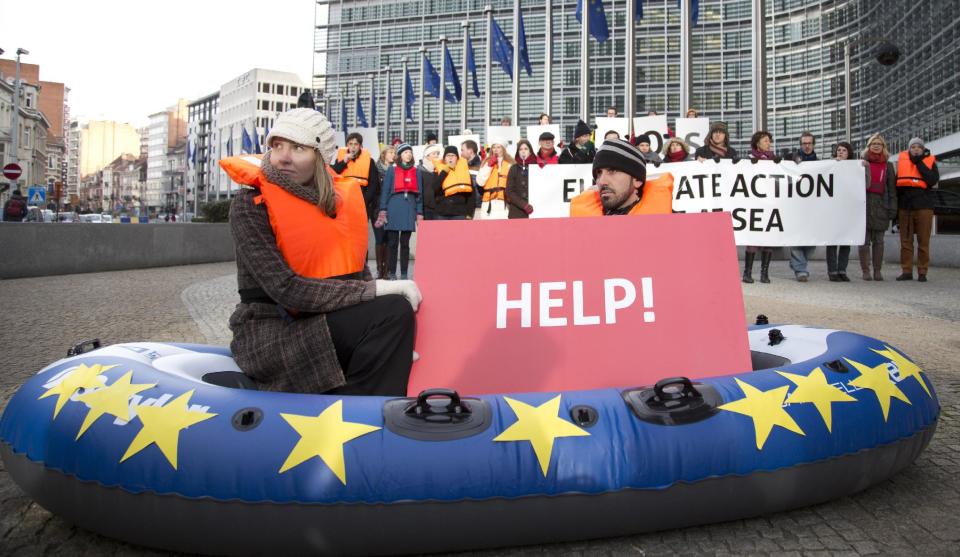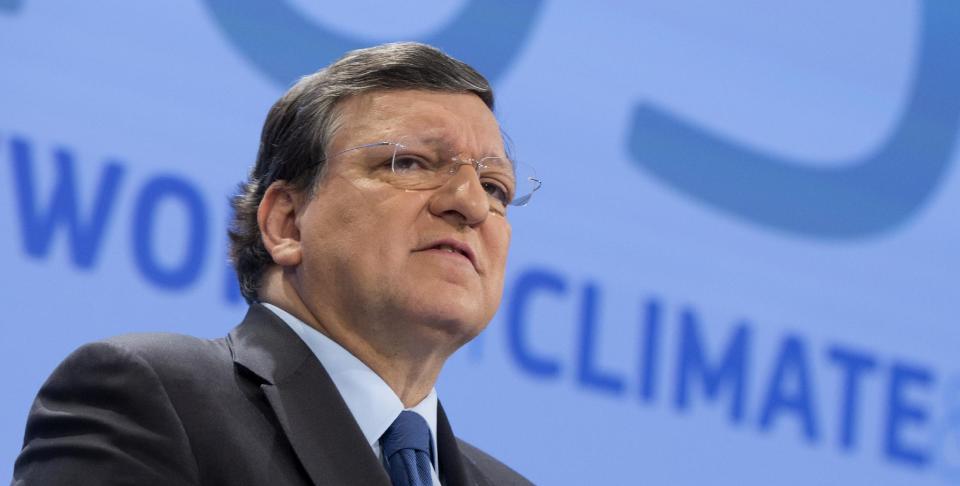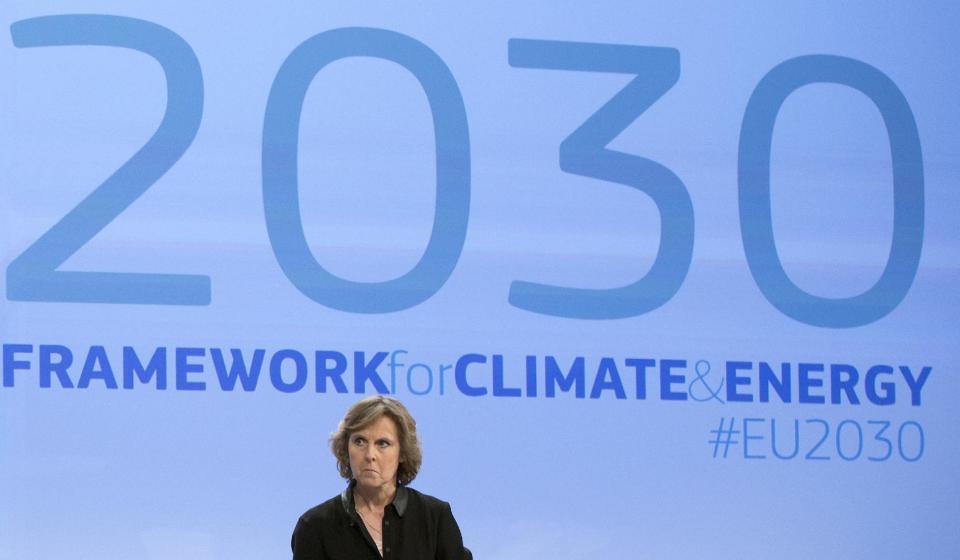EU relaxes renewables target, reaps criticism
BRUSSELS (AP) — The European Union on Wednesday shied away from more ambitious renewable energy goals as the bloc's sluggish economy appeared to dent its zeal in the global fight against climate change.
To the dismay of Germany, environmentalists and others, the European Commission stepped back from proposing tougher binding renewable energy targets for each of the 28 member nations. Instead, it seeks the introduction of a less ambitious pan-European goal of renewable energy consumption reaching 27 percent by 2030.
There are fears the EU, long a trendsetter in climate change policies, might make it easier for the U.S., China and developing economies to dodge tougher action.
The proposal by the Commission, the bloc's executive arm, will shape the EU's energy and climate action policies over the coming years, but it still needs approval from EU governments and the European Parliament over the coming year.
On greenhouse gas emissions, the commission called for a reduction of 40 percent by 2030 compared to 1990 levels instead of its existing binding target that calls for a 20 percent reduction by 2020.
Overall though, Europe's financial crisis and protracted recession from which it is only slowly emerging has subdued its appetite for tough climate action.
European Commission President Jose Manuel Barroso defended the package as the right balance between fighting climate change and making sure Europe won't fall behind economically.
"Climate action is central for the future of our planet, while a truly European energy policy is key for our competitiveness," Barroso said.
Germany, Europe's biggest economy, has vowed to replace nuclear power with renewable energy sources by 2022. Berlin had urged the commission beforehand to stick to binding national targets for energy generated from water, biomass, solar and wind instead of watering it down by introducing a pan-European goal.
Economy and Energy Minister Sigmar Gabriel said without the previous binding targets, Europe would never have made the progress it has. "We should continue consistently along this road," Gabriel said.
But many poorer EU nations had pushed the commission in the other direction as they face higher energy prices, just as those are falling in competing economies like the U.S.
"When gas prices in the European Union are three or four times as high as in the United States, then this is a competitive disadvantage we can't accept," Energy Commissioner Guenther Oettinger said.
The commission's proposal also includes facilitating shale gas exploration, or fracking. The technology is still in infancy in Europe amid fears of the environmental and drinking water pollution it might cause.
Currently, the EU's greenhouse gas emissions are down by 18 percent compared to 1990, while the bloc's economic output grew by 45 percent in the same time.
"It is possible to have growth while reducing emissions," Barroso said.
But Britain and Germany said the EU must be prepared to go even further than its 40 percent reduction target if a new international treaty can be struck next year to limit global warming.
"Britain has been clear that Europe must be ready to adopt a 50 percent target if the rest of the world is prepared to sign an ambitious global climate deal in 2015," said Edward Davey, secretary of state for energy and climate change.
Renewable energies currently contribute 12.7 percent to the bloc's final energy consumption — including electricity, heating and mobility — compared to about 9.5 percent in the U.S. The EU's current 2020 target for a share of 20 percent includes binding goals for each nation, varying in ambition according to where they stand.
Some countries like Germany and Spain already get more than 20 percent of their electricity from renewable sources, meaning the new Europe-wide target could make it easier for some countries to scale back renewable energy efforts and meet their greenhouse gas reduction commitments by increased use of nuclear power instead.
Climate activists lambasted the EU for falling behind on some of its ambitious goals.
"The January sales are on and it looks like Europe's dirty energy companies have bagged a bargain," Greenpeace EU managing director Mahi Sideridou said.
The Climate Action Network, a coalition of more than 120 non-governmental organizations, also criticized the emission reduction targets as too timid.
Europe's business lobby, in turn, welcomed the package for acknowledging the challenge of high energy prices. It did call for international coordination.
Markus Beyrer, head of the Business Europe group, called on EU leaders "to make sure that Europe will not be once again a lone front-runner without followers."
___
Associated Press reporters Jon Fahey in New York and Geir Moulson in Berlin contributed reporting.
___
Follow Juergen Baetz on Twitter at http://www.twitter.com/jbaetz





